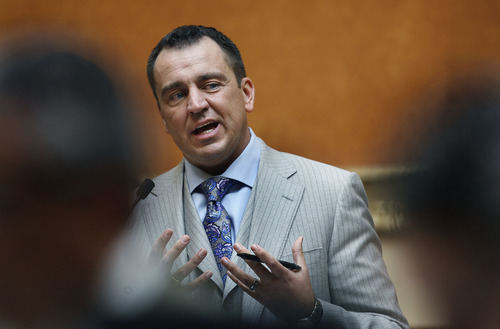This is an archived article that was published on sltrib.com in 2013, and information in the article may be outdated. It is provided only for personal research purposes and may not be reprinted.
The House took a shot Wednesday at slowing down a dirty campaign tactic called "push polling" that is aimed at swaying — not measuring — public opinion.
Such polls ask loaded questions like, "If you knew that candidate A was a scoundrel, would you be more or less likely to vote for him," said House Majority Whip Greg Hughes, R-Draper, sponsor of HB44.
The House voted 64-8 to pass his bill to require all polls to identify who paid for them. Hughes said that would show voters who is doing such things, and maybe slow the tactic.
Rep. Carol Moss, D-Holladay, said she was targeted in the last election for months by such anonymous polls. "Most people deduced it was by my opponent," she said. "It was a very unpleasant thing to be a victim of that kind of misleading attacks and prejudicial questions, and it's high time we made this transparent so people know who's responsible."
But Rep. Joel Briscoe, D-Salt Lake City, warned it still would be easy to escape disclosure by forming another group with a generic name to actually pay for the poll instead of a candidate. Hughes said his bill would at least create some trail to follow, which current law does not.
Rep. Brian King, D-Salt Lake City, opposed the bill saying the disclosure requirement would have "a chilling effect on free speech."
Hughes said the bill is not much different than requiring disclosure of who donates money to political campaigns. "I might get more contributions if I didn't have to disclose any of my contributors, too," he said, adding that more transparency is needed.
The bill creates a $100 penalty for groups that fail to disclose who pays for the polls or misrepresent who is paying. It now goes to the House.



